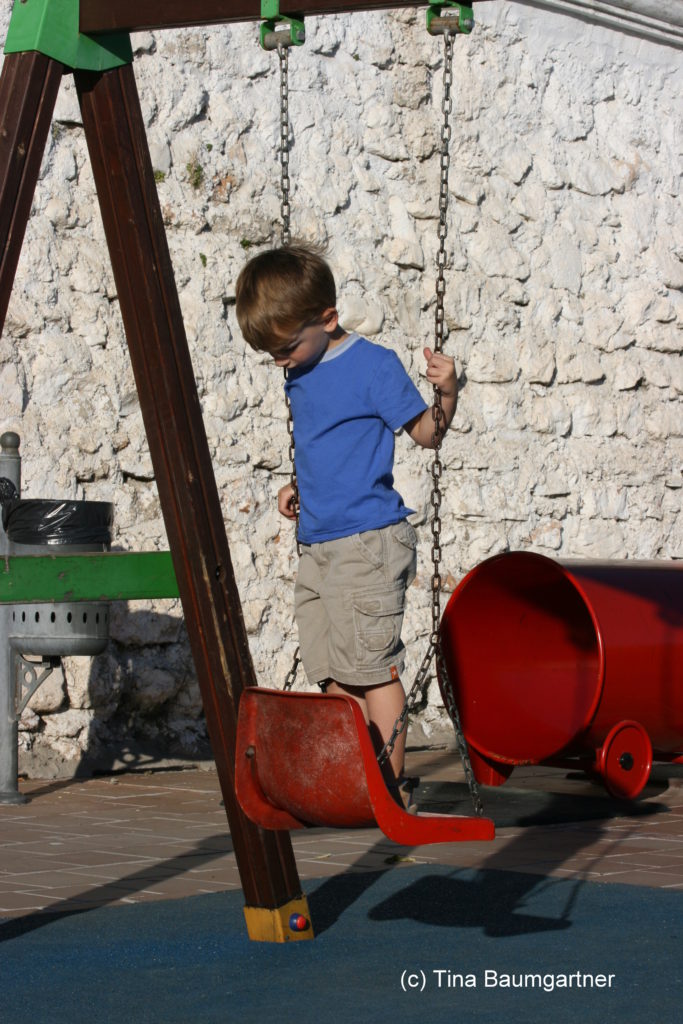A number of considerations – other than financial – are critical when deciding whether one should embark on the adventure of a sabbatical with a small child.
Are you healthy?

My boy is a model of health. No vegetables other than peas ever cross his lips but other than a case of the sniffles in winter the kid is as healthy as one could ever hope for. So are we for the most part. Had either one of us suffered from a disease that requires frequent treatment or constant monitoring this trip would have never happened. Good health and a robust constitution were the most basic requirement for us. I am not saying that such a trip can’t be undertaken even with say a chronic disease but I can’t speak to that.
Dietary Restrictions

Whether it is by choice or necessity dietary restrictions can make staying in certain countries difficult. If you are vegan or need/choose to eat a gluten-free diet etc. you might have trouble finding appropriate choices in restaurants or even supermarkets. A country like Argentina might not be the best choice for vegetarians/vegans. European stores now sell gluten free products but often only in specialty market and nowhere near the selection you will find in our local Bay Area store. Depending on your dietary restrictions and country of choice, this is something you need to research.
Are you a traveler?
This is an important question to consider when planning an extended trip. Some people love it and and are born to travel, other feel nervous when they leave home. Consider a few basic points to start you thinking about where you fall on that spectrum.
If you haven’t traveled quite extensively outside the US I suggest you start small by taking shorter trips to foreign countries. Yoga retreats in Bali, business trips to Canada, luxury getaways to Paris or London do not count as international travel experience in that context, nor does that four week bike tour across England you took after graduating from high-school. A family vacation abroad any place outside the usual tourist hotspots with all inclusive hotel and entertainment options – now that counts.
This is important because only by being in places that are different from your home for a length of time will you find out whether the demands and newness of travel are for you. If travel for you means to go to a place where everything is just like home only better and cheaper, a place where you spend the balance of your day on a beach being served drinks with little paper umbrellas and the only choice you have to make is whether to have steak fajita or the grilled sword fish for dinner – then you might not be prepared to take on a sabbatical. During a months-long sabbatical travel has to become routine, it is no longer always exciting, fascinating, relaxing and luxurious. It can at times be hard work and you need to know before you take off, whether you can deal with that.
You also need to know whether you can adapt to different life-styles and rhythms – at least for a while. If the Latin American habit of eating dinner late at night and playing music even later drives you crazy because you like to be tucked in by 9:30 pm then you need to either be willing and able to make peace with noisy nights or avoid such places.
If you freak out every time a cockroach scuttles by then think about how you would react if you found a rat behind your stove. If the answer is: “I’d run out of the house screaming on top of my lungs and would never set foot into that cursed place again”, then you just ruled out a sizable chunk of the globe as possible destination. I had the questionable pleasure of finding a dead rat behind a stove and to squash cockroaches on a regular basis and it is not something I enjoy. But then again, it doesn’t freak me out either.
Creatures of habit

If you can’t image life without playing golf on Sunday morning or can’t get through the day without a venti decaf latte, skimmed milk, extra foam and a dash of caramel syrup from a specific US coffee chain – a sabbatical to foreign countries is probably not for you. Or at least – coming back to the point above – you need to find out first, ideally on more than one occasion.
There will be many habits that you’ll have to let go off, habits that might be so ingrained in your life and daily routines that you don’t even recognize that they are habits that don’t translate well to other cultures. It is impossible to attempt even a partial list, so the most reasonable thing to do is to start doing your research early. I learned a lot by speaking to my Mexican cleaning lady and the parents of the Indian kids in my son’s day care. There will be surprises, though, regardless of how well you prepare so keep an open mind. Different rules in different cultures.
Here is one example: if you are offended and/or annoyed by people smoking in public better get used to it if you are planning on traveling to certain countries. In Europe, esp. Eastern Europe many more people smoke than in the US, esp. California.
I don’t mean to scare you, but it is important to be realistic: there will be things that are dear to you that you won’t have access to or won’t be able to enjoy for long periods of time (the chocolate in Mexico is, well, not great and I am chocoholic). If those comforts are extremely important to you than maybe a long trip to places unknown is not for you. I urge you to find out though: if I made it without chocolate for 4 weeks anybody can.
Living with uncertainty
This is similar to the first point “Are you a traveler?” but I want to call this out especially. Traveling you will encounter problems, canceled flights, sub-expectation accommodations, pick-up people who don’t show up to pick you up, dead rats behind the stove, strange foods, even stranger customs, the list continues …. There will be days when it feels like anything that can possibly go wrong, has gone wrong – and that might actually be the case. Not that the same can’t happen when flying from San Jose to Philadelphia or driving to the Sierra Nevada for a weekend trip – but there you speak the language, have a functioning phone, can Yelp the nearest burger joint, call AAA, or book an alternate room with the help of a number of handy apps. In rural India those options don’t exist.
You need to be prepared to improvise and make a brave face and given an upbeat pep talk to your child who will certainly sense your anxiety and get unhappy and cranky as a result. If there is anything worse than being stranded at an airport for an undetermined amount of time it is being stranded at an airport for an undetermined amount of time with a cranky child.
In such instances you need to rally, or at least one of you needs to rally if you travel with your partner. It is critically important not to loose it during such challenges and not to start blaming one another for whatever went wrong but to look for alternatives, find another way to get where you want to go – or just wait for that delayed bus/train/plane/pick-up driver. To be able to do that you need to be comfortable with uncertainty. The plan is never to be stranded anywhere at 10 pm without a hotel room but should it happen, you need to pick up and find another hotel, or a B&B or a guest house – something, even if it isn’t optimal.
Know Your Travel Partner – And Your Child
Another of those critically important factors to consider: if you and your spouse can’t agree on beach vs. mountains, country vs. city, hot vs. cold, hiking vs. driving, activity vs. beach bumming then you need to think this through carefully. If you are an extroverted city-dweller a few weeks spent in a small rural town might be purgatory rather than heaven and for your introverted spouse the endless hustle bustle of a big city might be punishment. Even if there is enough common ground both need to understand that this still means that compromises have to be made by all involved, even the child – but the child least of all.
I am an avid photographer, photography is my Zen, my yoga, my meditation. Photography takes times, involves lying on the ground to shoot from below, climbing on all sorts of chairs and other things to shoot down on, jumping up mid-dinner to run after a band or interesting group of people with my camera, it involves early mornings and evenings when the light is best. Not optimal when traveling with a young one. I shot about 60,000 pictures in 6 months, most of which are crap because I shot basically while walking or just taking a short break and then running after my husband and son. Very few pictures I am proud of, mainly those I took on the rare occasions when I was alone and could really take the time necessary.
It was a compromise I was willing to make and the compromise on my husband’s side was to let me go off on my own occasionally to have some time to take pictures.

The compromise we both made to the benefit of our child was that we rested a lot and visited every playground there was to let him putter around. I am very much a doer and at times sitting on yet another bench watching my son dig holes in a sandbox was physically painful. It was the price I had to pay, though, and it was worth it.
It is just as important to understand your child and figure his or her needs into the equation as well. I knew early on that our child is headstrong, extroverted, curious, chatty and probably on the very mild end of the Asperberg’s spectrum. Planning activities we took this into consideration: sudden unprovoked changes of plans didn’t go over well, when changes were required because of circumstances these needed to be explained to him in terms that he could make sense of.
It was best if there always was something of interest to him in whatever we were planning on doing. It doesn’t need much: an ice-cream, the opportunity to ride a rickshaw, see chickens, build a sand castle or find a playground – you know your child, know what excites him or her – that’s what you need to focus on and them live up to it. If ice cream is promised then ice cream needs to be delivered sooner or later.

My kid always liked to understand everything so we explained our heads off, we told him about Mayan gods and Italian monks, about Moorish architecture, graffiti, ancient weapons and Hinduism. Does he remember it – no way, it was mostly well over his head but he felt included and thrived in the feeling to be taken seriously. Most kids probably aren’t as excited about Mayan ruins as my geek, but whatever it is you need to do to make him or her comfortable, it is well worth doing although it tends to get quite exhausting at times.
Summary
When thinking about taking a sabbatical ask yourself the following questions:
- Are we all healthy enough?
- Am I a traveler, do I enjoy travel even if it isn’t luxury cruise style? Do I enjoy different people, cultures, foods?
- Am I able to give up on some things that are near and dear to me? How important are certain habits and products to me? Am I willing to give them up for the duration of the trip?
- Can I live with uncertainty and improvise when needed or do I fall apart if not every step of the way goes as planned?
- Do my partner and I see eye to eye with regards to travel destinations and expectations? Do we know what is important to our child and how we can keep him/her interested and engaged?
